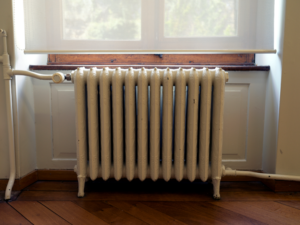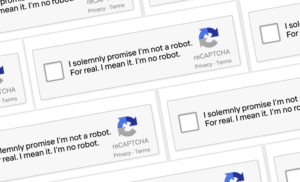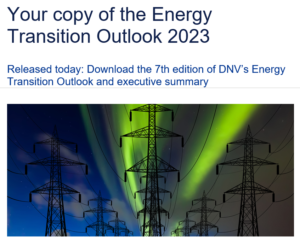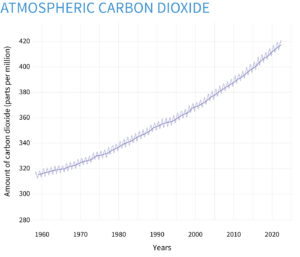
The inalienable rights in the United States are Life, Liberty and the Pursuit of Happiness. Air conditioning and space heating are not in those rights unless they threaten life or liberty. We know that extreme heat kills, especially our older citizens. Power outages in the hot areas of the US have proven that point and similar gruesome results have been seen in Europe.
Yet, air conditioning is a relatively recent invention … barely more than 100 years old, and only available to the masses in the last 50 years at what we call affordable costs. After all, we can all huddle in one room of our homes with one window air conditioner there. But we want more than this.
I grew up without AC in our home in Brooklyn and remember sleeping with only a sheet over me and being quite uncomfortable. Fortunately, that was only an occasional discomfort … most summer nights were acceptably cool. We have been living aboard our boat in Mystic, Connecticut, this summer and have never really needed to run the AC. We ran it occasionally in the late afternoon to cool the boat down so we could open the windows at night and be comfortable.
As we press on in modern times and other “less fortunate” countries in the world work towards our comforts, it has become blatantly clear that we can’t come up with acceptable power sources to make this possible. If we continue the trend toward space comfort, we are certain to strip the gears out of all the wonderful promises and plans being touted about achieving carbon reductions.
My friend and professional colleague Dan Delurey penned a wonderful summary of all this in his latest blog post: “The Climate Conundrum of Air Conditioning.” (Linked and copied below.) It is a wonderful summary of the challenge the world faces, and that almost no one else is talking about.
Does this mean we shouldn’t be permitting mass migration from the Northeast to the South? We stopped residential development in areas of Georgia when it became clear that we didn’t have the water to support it. One only need look at the history books searching for the reasons people abandoned cities to see proof that water and the food sources permitted by the presence of water drove most of it.
Perhaps the underlying word that should replace “Right” is “Expectation” or “Entitlement.” If these ideas are going to wipe out civilization as the alarmists predict, why aren’t we talking about changing that along with our delusional bans on internal combustion engines and natural gas for heating and cooking in our homes.
Let’s talk these issues through before it is too late.
The Climate Conundrum of Air Conditioning
Dan Dulurey
During one of the UN COPs of the last decade, I was an invitee to a formal dinner put on by a major NGO. I found myself sitting next to the Chief Climate Negotiator for India. During what was for me a fascinating discussion, I commented that I had seen data that showed low penetration of air conditioning in his country, but rising sales of A/C units. I asked him how the country was going to deal with that in terms of India’s climate plans given that a rising electricity demand driven by A/C could be fueled by fossil-based electricity generation. He replied by saying that the combination of rising temperatures and rising desire for air conditioning would indeed be a challenge.
And there you have it, as evidenced across the globe this summer: hotter temperatures lead to more air conditioning use, which leads to more electricity consumption, which is supplied by grids and systems that are still largely fossil-based. A/C currently causes 4% of global emissions and in 2022 nearly 1/5 of the increase in global CO2 emissions came from increased electricity demand during extreme weather.
Let’s for a moment go back prior to electricity, and therefore before A/C. After all, A/C was only invented in 1902 (by a guy named Carrier).
I am not an anthropologist, but my view is that from the time humans appeared on the scene, they had the ability to warm themselves against cold. They could add covering, use structures and materials, and use fire. They could also migrate (something I will write more about in a future post). But cooling was a different story. There was only so much one could do short of not living in places that were too hot to live.
I grew up on the NY/Southern Vermont Border in a house built in 1880 that did not have air conditioning. Many people don’t realize that while the New England winter is famous for its snow and low temperatures, the summer has always been a hot and humid one. To cope with this, my mother (and eventually my siblings and I) took care to leave the windows open during the cool nights and then to shut them in the morning to hoard the cool air trapped in the sealed-off house during the day. That was our A/C. Oh…and we also had a porch, which functioned (and helped cause) a breezeway that we spent a lot of time on in summer.
I could pause here and go on one of my rants about the decline of the porch, not only for combatting heat but also as a contributor to a decline in getting to know your neighbors and those who walk by. But I won’t – this is about A/C.
Thanks to A/C, people today are living anywhere they want regardless of the heat. Witness Phoenix, the number one destination for American to move to according to the 2020 U.S. Census. The penetration of A/C in the U.S. is 89%. It is 19% and growing in the EU. The International Energy Agency (IEA) reports that only 10% of the 2.8 billion people who live in the hottest areas of the world have A/C. (Also, it is notable that there are roughly 800 million households that don’t have electricity – yet)
In the U.S. the story of air-conditioning is also the story of peak electricity demand. Prior to A/C, the electricity system did not have the kind of dynamic peak demand it has had for the past few decades and today. This has changed the way the electricity has been planned and operated (e.g., the rise of Peaker Plants, load management and demand response).
With an electricity system that is totally zero-emissions-based I suppose it doesn’t matter how much A/C is used or when it is used. But that is not the system we have. One of the sleeper issues with global warming and climate change is that it is leading not only to higher daytime temperatures but higher nighttime temperatures as well (i.e., higher daily “lows”). That means higher use of A/C for during more hours where fossil generation will likely be used. That is obviously not good.
And before I leave the topic of peak demand, it has to be pointed out that heat-driven strain on the power system can mean the threat of brownouts and blackouts rises – at time when A/C is most needed.
In 2023, heat waves in Europe were responsible for over 61,000 deaths. Senior Citizens are particularly at risk. By 2034, it is expected that there will be more Americans over 65 than under 18. It is also estimated that exposure to extreme heat for the 70+ cohort could more than double by 2050.
Cities have already warmed twice as fast as the global average due to heat islands. I have seen numbers for deaths from extended blackouts during periods of extreme heat and I don’t even want to think about them.
Anyway…
The first title I chose for this Post was “The Right to Be Cool” and I was going to concentrate on the question of whether people have a right to be cool no matter where they choose to live but I am not going there – at least not right now.
But there is a different right to consider when it comes to air conditioning, and it involves people for whom A/C can be a challenging thing to include in their budget. For example, in a recent in a recent piece aired on PBS, a citizen was interviewed that had a monthly fixed income of $882. Her window A/C unit was costing her $240/month.
The U.S. has had in place for years a program called LIHEAP, which stands for Low-Income Heating Assistance Program. It was created based on what I will call the right to be warm (or the right to not freeze). It provides financial assistance to qualifying households to make sure that they do not forgo heat in their dwelling and risk the dangerous consequences of that. But now there is increasing risk from heat.
Thus, among the many new situations we are going to have to grapple with due to global warming and the climate change it is causing is the creation of a new right – the right to be cool, or conversely put – the right not to die of extreme heat. LIHEAP is set up to do that, although this is widely unknown by both low-income customers as well as policymakers and assistance providers. And most states do not offer it. According to the Associated Press, nearly 30 million households struggle to pay their heating bills but at least get a subsidy to help them do that. But only 3% get a subsidy for cooling costs during the hot months of summer.
Providing financial assistance to low-income households may only be one of the aspects of extreme heat we need to consider and deal with going forward. Major changes may be necessary in multiple polices, ranging from efficiency of A/C units to building design to building codes to operation of cooling centers to design of electricity systems. According to DOE A/C accounts for 6% of electricity consumption).
For example, there are local ordinances that can be put in place. As I am fond of pointing out, both Washington, DC and New York City have rules that prohibit commercial establishments to use A/C while their windows and/or doors are open. In my experience in both cities, this rule is not widely known by the general public or the establishments themselves. Unfortunately, nor is it widely enforced, even given hotlines in each city for public reporting on violations. But it would not be hard to increase enforcement.
The world is going to have more A/C. The International Energy Agency reports that 10 A/C units will be sold every second between now and the year 2050. Anyone in any country with enough disposable income to afford A/C is going to have it. People in the U.S. and elsewhere are going to use A/C more often than before. This is particularly the case in urban areas, where the “heat Island” effect can lead to 8 degree higher temperatures than other areas of the same city with more trees and less cement.
Even I now (unintentionally) have A/C.
I do not live in the house I grew up in. But my recently purchased house is not dissimilar. It was built in 1870 and it has a porch. For the first few years I lived in it I did not have air conditioning and it was fine. But earlier this year, I electrified my heating by having heat pumps installed. In doing so, I also was having air conditioning installed. I have not used that part of the system yet, but it makes me wonder how many people are using their first ever A/C which they got as part of a heat pump purchase.
At least if (when?) I eventually use it; it will be a new efficient A/C unit. The number of old inefficient units in place and being used, however, is huge. We can only replace them so fast. And we can only increase the efficiency of new units so much. And no matter what unit is being used, it will be generating emissions for some time to come.
A/C cannot be the only answer to the question of “how do we deal with extreme heat under climate change”. It may not even be the best answer. We as a country and the world at large need to take an “all of the above” approach to plans and strategies to cope with extreme heat.
Oh …. And given the negative spiral of more A/C/ meaning more emissions meaning more heat, meaning more emissions……. we need to do that soon.
We don’t have that much time.




